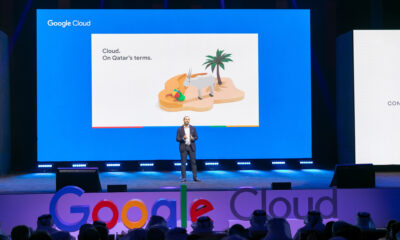News
Web Summit Expands With New Middle East Event In Qatar
Thousands of attendees from around the world will gather at the Doha Exhibition and Convention Center in March 2024.

Today, the world’s largest technology conference, Web Summit, announced the launch of a new event in the Middle East, titled Web Summit Qatar, to be held at the Doha Exhibition and Convention Center (DECC) in March 2024.
The tech expo will be the first of its kind in Qatar, and will bring together thousands of entrepreneurs and investors from around the globe, as well as the next generation of startups disrupting the tech landscape.
The Middle Eastern event is part of Web Summit’s ongoing strategy to widen its reach into new regions and economies, and will provide a wealth of opportunities to connect the global tech community.
After receiving bids from several regional cities, Web Summit chose Doha as the new event’s host. Web Summit plans to deepen existing relationships in the region through Web Summit Qatar, which will run for at least five years.
Also Read: A Guide To Digital Payment Methods In The Middle East
“Web Summit in Lisbon has become the world’s largest technology conference, and our ambition is to make Web Summit ever more global. Establishing a new event in the Middle East is part of that broader plan for Web Summit,” says CEO of Web Summit Paddy Cosgrave.
Qatar’s technology sector is evolving rapidly, with a thriving start-up scene supported by both the government and the private sector. The World Economic Forum’s Global Competitiveness Report 2021 ranks Qatar 28th globally for its capacity for innovation, ahead of other countries in the region. Qatar is a heavy investor in its technology infrastructure, with projects focusing on emerging technologies, including artificial intelligence, blockchain, and cybersecurity.
News
Mamo Completes $3.4M Funding Round To Enhance Fintech Services
The startup will use the influx of cash to expand into Saudi Arabia and across the wider GCC while improving its product offering.

UAE-based fintech Mamo has announced the completion of a $3.4 million funding round that will help the startup extend its market presence and improve its product offering. Investors included 4DX Ventures, the Dubai Future District Fund and Cyfr Capital.
Mamo’s platform offers “payment collection, corporate cards and expense management” to help small and medium-sized businesses consolidate and streamline their operations. With the latest influx of capital, Mamo will further develop its comprehensive suite of services and begin testing its product lines in Saudi Arabia, further extending its footprint across the GCC.
Imad Gharazeddine, co-founder and CEO of Mamo, stated: “We’ve been in the market for a while now and are incredibly proud of what our team has achieved. The holistic and expansive nature of our product offering has helped us continue to grow sustainably. This additional funding will allow us to reach our medium-term goals even faster. The support from new and existing investors is a testament to our strong expertise and the ability to deliver on our customer promise”.
Daniel Marlo, General Partner of lead investor 4DX Ventures, added: “We have immense trust in Imad’s vision, leadership and Mamo’s innovative approach to provide a user-friendly and comprehensive financial solution for SMEs that makes financial management more accessible and efficient. We are proud to partner with them and support their mission”.
Also Read: A Guide To Digital Payment Methods In The Middle East
Amer Fatayer, Managing Director of Dubai Future District Fund’s investment team, also commented: “Mamo’s localized product lines serve as an infrastructure for SME payments and spend management in UAE, a segment that is underserved by the country’s current banking infrastructure. The team has taken a product-first approach to consolidating SMEs’ financial journeys and building a fintech solution deeply embedded in a business’s core operations”.
To date, Mamo has raised around $13 million in investment funding and now boasts a team of 30 people. The company’s intuitive financial services platform has allowed over 1,000 businesses to consolidate their financial operations and significantly reduce payment fees.
-

 News4 weeks ago
News4 weeks agoAmazon Prime Day 2024: Get Ready For 6 Days Of Amazing Deals
-

 News4 weeks ago
News4 weeks agoSamsung Unpacked 2024: What To Expect From The July 10 Event
-

 News4 weeks ago
News4 weeks agoCoursera Report Shows Surge In UAE Interest In AI Upskilling
-

 News4 weeks ago
News4 weeks agoMeet Dubai’s Groundbreaking Smart Robot Delivery Assistant
















